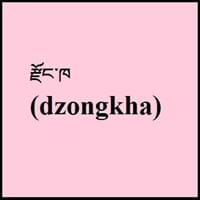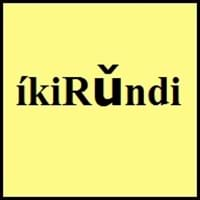Dzongkha and Kirundi
National Language
Bhutan
Burundi, Gambia
Second Language
India
Not spoken in any of the countries
Speaking Continents
Asia
Africa, Asia
Minority Language
India
Not spoken in any of the countries
Regulated By
Dzongkha Development Commission
Not Available
Interesting Facts
- Standard romanization of the Dzongkha language is Roman Dzongkha.
- Kirundi language is tonal, since it has high and low essential tones.
- Kirundi Language is referred as a language where Meeussen's rule is active, this rule describes a certain pattern of tonal change in Bantu languages.
Similar To
Sikkimese Language
Kinyarwanda Language
Derived From
Tibetan Language
Not Available
Alphabets in
Dzongkha-Alphabets.jpg#200
Kirundi-Alphabets.jpg#200
Scripts
Dzongkha Braille, Tibetan Braille
Latin
Writing Direction
Not Available
Not Available
Hello
Kuzoozangpo La
Bwakeye
Thank You
Kaadinchhey La
Urakoze
How Are You?
Ga Day Bay Zhu Yoe Ga ?
Urakomeye?
Good Night
lek shom ay zim
Ijoro ryiza
Good Evening
Not Available
Mwiriwe
Good Afternoon
Not Available
Mwiriwe
Good Morning
Not Available
Mwaramutse
Please
Not Available
Ndagusavye
Sorry
Tsip maza
Not available
Bye
Log Jay Gay
N’agasaga
I Love You
Nga cheu lu ga
Not available
Excuse Me
Tsip maza
Not available
Dialect 1
Laya
Rwanda-Rundi
Where They Speak
Bhutan
Burundi, Rwanda, Tanzania, Uganda
Where They Speak
Bhutan
Tanzania
Where They Speak
Bhutan
Tanzania
How Many People Speak
Not Available
Total No. Of Dialects
Not Available
Speaking Population
Not Available
Second Language Speakers
Not Available
Native Name
རྫོང་ཁ (dzongkha)
íkiRǔndi
Alternative Names
Bhotia of Bhutan, Bhotia of Dukpa, Bhutanese, Drukha, Drukke, Dukpa, Jonkha, Rdzongkha, Zongkhar
Not Available
French Name
dzongkha
rundi
German Name
Dzongkha
Kirundi
Pronunciation
Not available
Not Available
Ethnicity
Ngalop people
Hutu, Tutsi, and Twa
Language Family
Sino-Tibetan Family
Niger-Congo Family
Subgroup
Not Available
Not Available
Branch
Tibeto-Burman
Not Available
Early Forms
No early forms
No early forms
Standard Forms
Dzongkha
Kirundi
Language Position
Not Available
Signed Forms
Not Available
Not Available
Scope
Individual
Not Available
ISO 639 6
Not Available
Not Available
Glottocode
nucl1307
rund1242
Linguasphere
No data Available
No data available
Language Type
Living
Not Available
Language Linguistic Typology
Not Available
Not Available
Language Morphological Typology
Not Available
Not Available
All Dzongkha and Kirundi Dialects
Most languages have dialects where each dialect differ from other dialect with respect to grammar and vocabulary. Here you will get to know all Dzongkha and Kirundi dialects. Various dialects of Dzongkha and Kirundi language differ in their pronunciations and words. Dialects of Dzongkha are spoken in different Dzongkha Speaking Countries whereas Kirundi Dialects are spoken in different Kirundi speaking countries. Also the number of people speaking Dzongkha vs Kirundi Dialects varies from few thousands to many millions. Some of the Dzongkha dialects include: Laya, Lunana. Kirundi dialects include: Rwanda-Rundi , Ha. Also learn about dialects in South American Languages and North American Languages.
Dzongkha and Kirundi Speaking population
Dzongkha and Kirundi speaking population is one of the factors based on which Dzongkha and Kirundi languages can be compared. The total count of Dzongkha and Kirundi Speaking population in percentage is also given. The percentage of people speaking Dzongkha language is Not Available whereas the percentage of people speaking Kirundi language is 0.13 %. When we compare the speaking population of any two languages we get to know which of two languages is more popular. Find more details about how many people speak Dzongkha and Kirundi on Dzongkha vs Kirundi where you will get native speakers, speaking population in percentage and native names.
Dzongkha and Kirundi Language Codes
Dzongkha and Kirundi language codes are used in those applications where using language names are tedious. Dzongkha and Kirundi Language Codes include all the international language codes, glottocodes and linguasphere.





